In my career field it’s gratifying to experience the “before” and “after” of a project because it’s a visual reminder of the progress that has been made in a space. In previous blog posts and on Instagram I’ve touched on steps I take to declutter and organize a home, but I rarely get in the nitty gritty of the process. If you’ve ever tried to declutter an area of your home you might remember the feelings of guilt, embarrassment, frustration, or plain disinterest that came with the task. That’s completely normal, by the way.
THE MOST DIFFICULT CATEGORY TO DECLUTTER
There are some categories that are easier to declutter than others. For some people, it’s easy to discard old bills or clothing, while for others the thought of donating stuffed animals or books seems next to impossible. We all have those categories that are difficult to tackle. For me? My skincare and makeup. I know, I know…how can something that I put on my face be so tough to declutter? The sentimental association I have with the products makes it difficult for me to let go.
If you caught my post last week you’re familiar with my recent diagnosis with Hashimoto’s disease. Not only is it impacting my daily routine and what I put in my body, but also what I put ON my body. For me that means that everything from what I stock in the shower to what I put on my face before going out the door had to be changed. Regardless of what was on my agenda, my day started with a swipe of my signature bold lip and made me feel put together regardless of what I was wearing.
It may sound silly to have such a serious relationship with these products, but it’s not the physical product that makes it so tough for me…it’s the memory. When I look on my bathroom counter I am reminded of the confidence, control, and health that I felt months ago. I also feel the pang of sadness that the items I used to love have lost their value and purpose and I also feel frustration for the money that was spent on each item.
Sentimental items are hands down the most difficult area for my clients to declutter. Honestly, more times than not the client doesn’t even want the actual item. For some people, they want a visual reminder of the memory, but it’s not adding value to their life (i.e. keeping your high school jeans front and center in your closet as “inspiration”). For other people, they just feel guilty for letting go (i.e. your great-grandmother’s china set). I’ve heard countless times that they can’t give away something because it was given to them as a gift or was their relatives. The thing is, every piece of physical clutter that is in your home is just adding to your mental clutter.
So, how do we declutter sentimental items? I’m putting into practice what has worked for my clients: reminding myself that it’s just stuff. You’re discarding an object and not a memory. Sure, I still wish I could put on my favorite MAC color every day but I don’t need the visual reminder that it’s not an option. For items that can be donated or consigned, remind yourself that someone else can benefit and find joy from the items that no longer serve you. If your grandfather’s coin collection doesn’t interest you, don’t store it in your garage to collect dust for decades. Let it go and free up your space by allowing someone who is truly interested in the item to take them. For me, releasing the physical clutter means that it will reduce my mental clutter so that I can focus on what’s really important: creating a home that is beneficial and functional for my (new) lifestyle.
MAKEUP STORAGE
What content do you want to see featured on the Rachel and Company blog? We’d love to know. Click here to take a quick, anonymous survey so that we can provide the best organizing content for you!
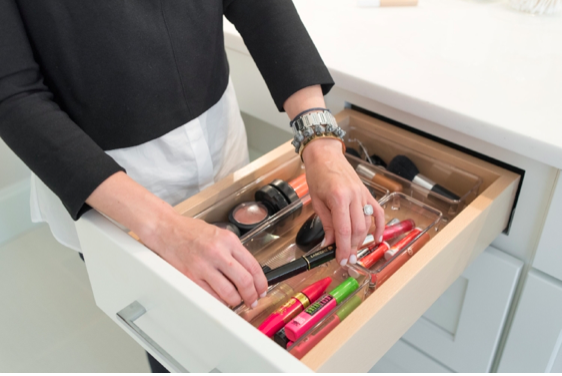
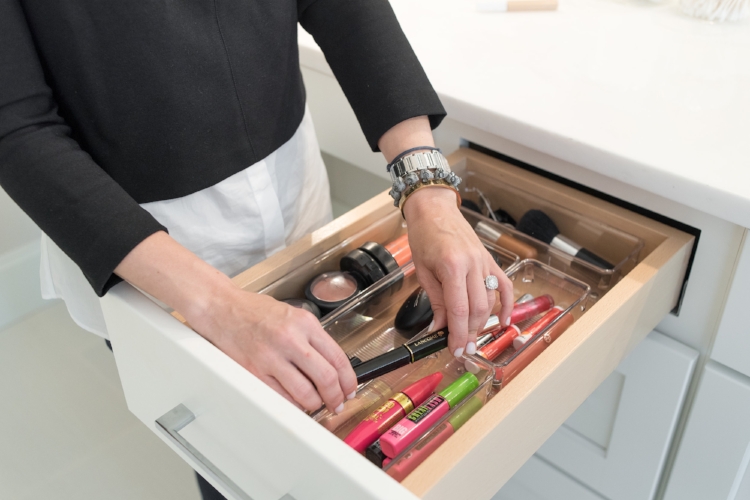

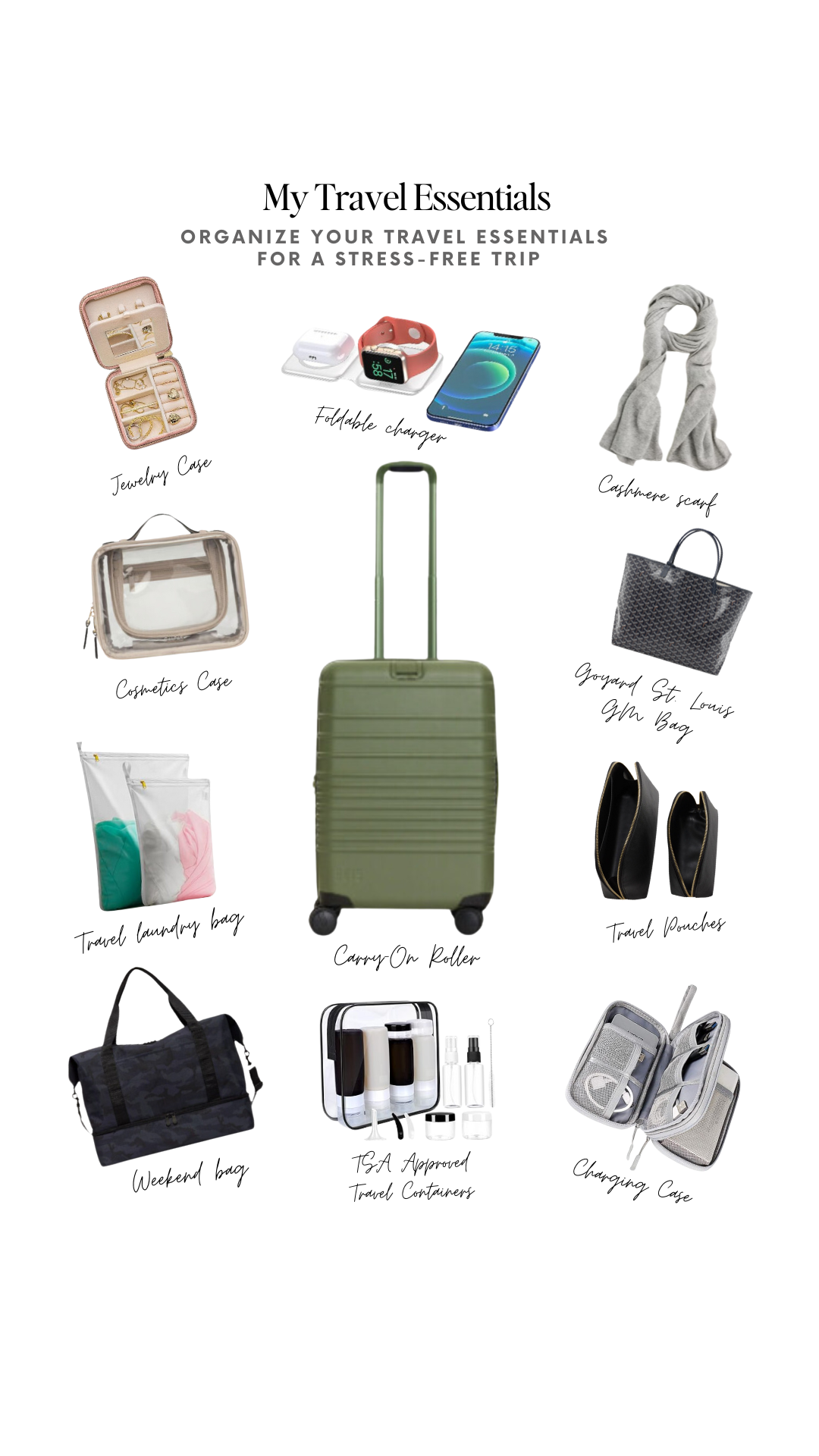
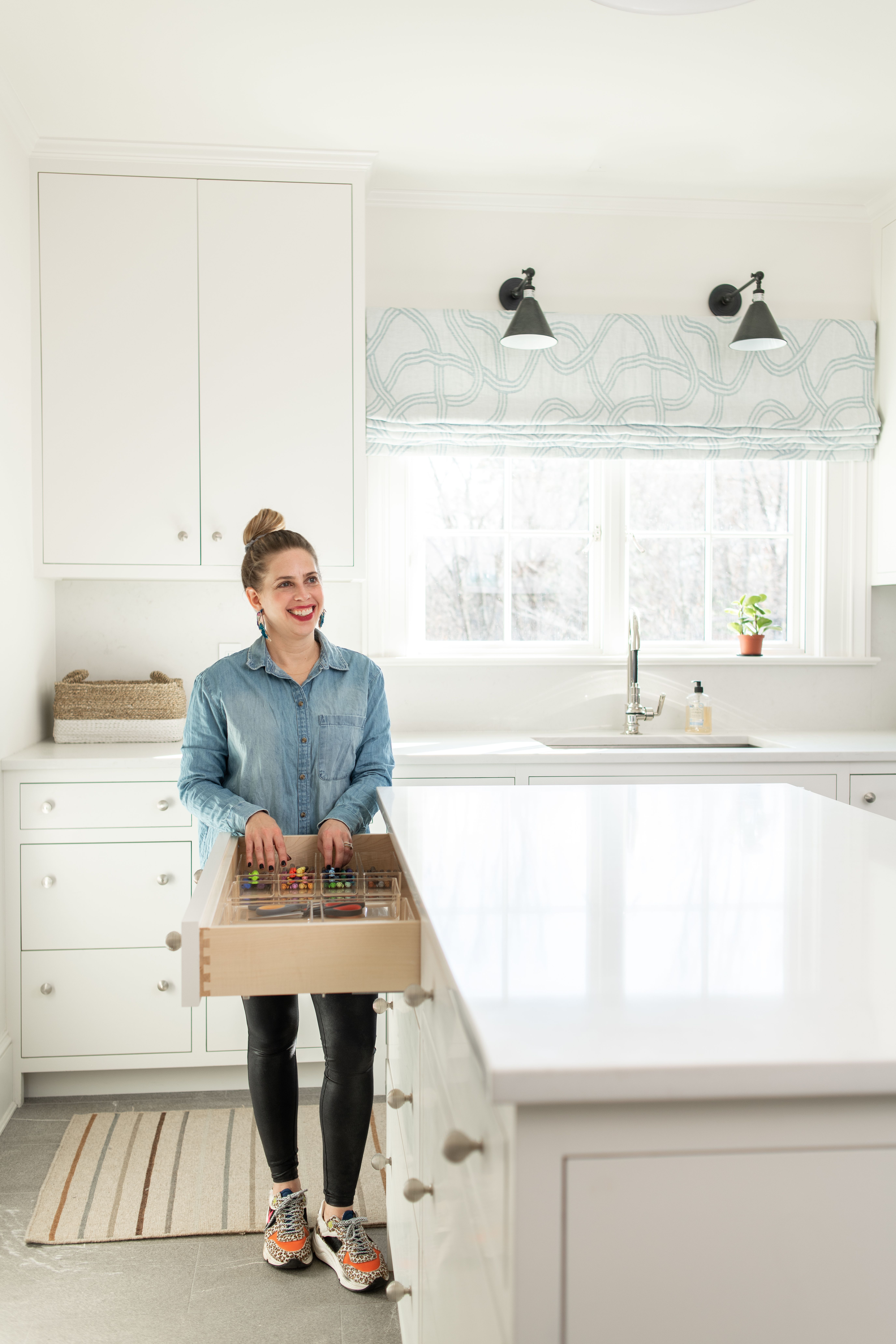
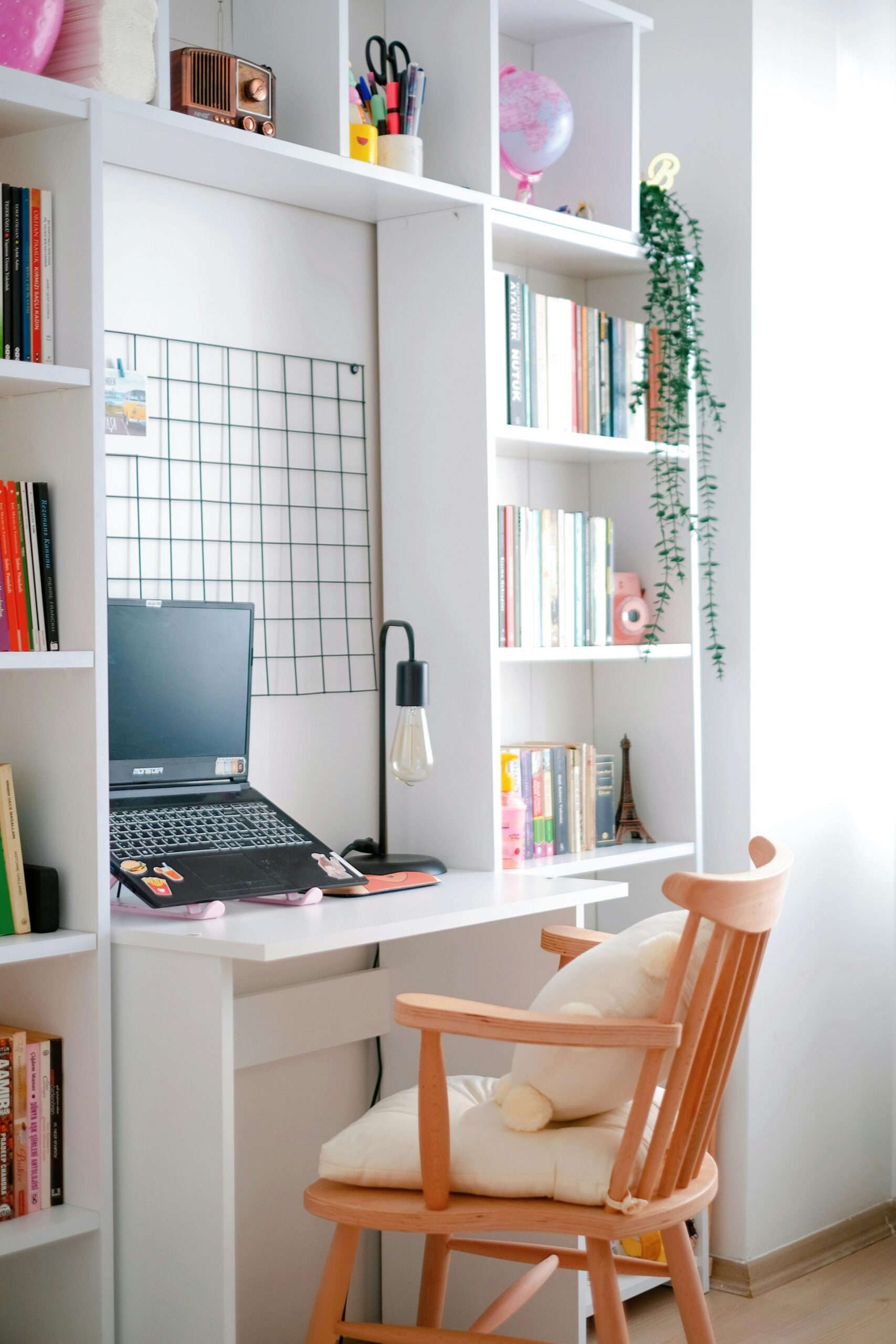
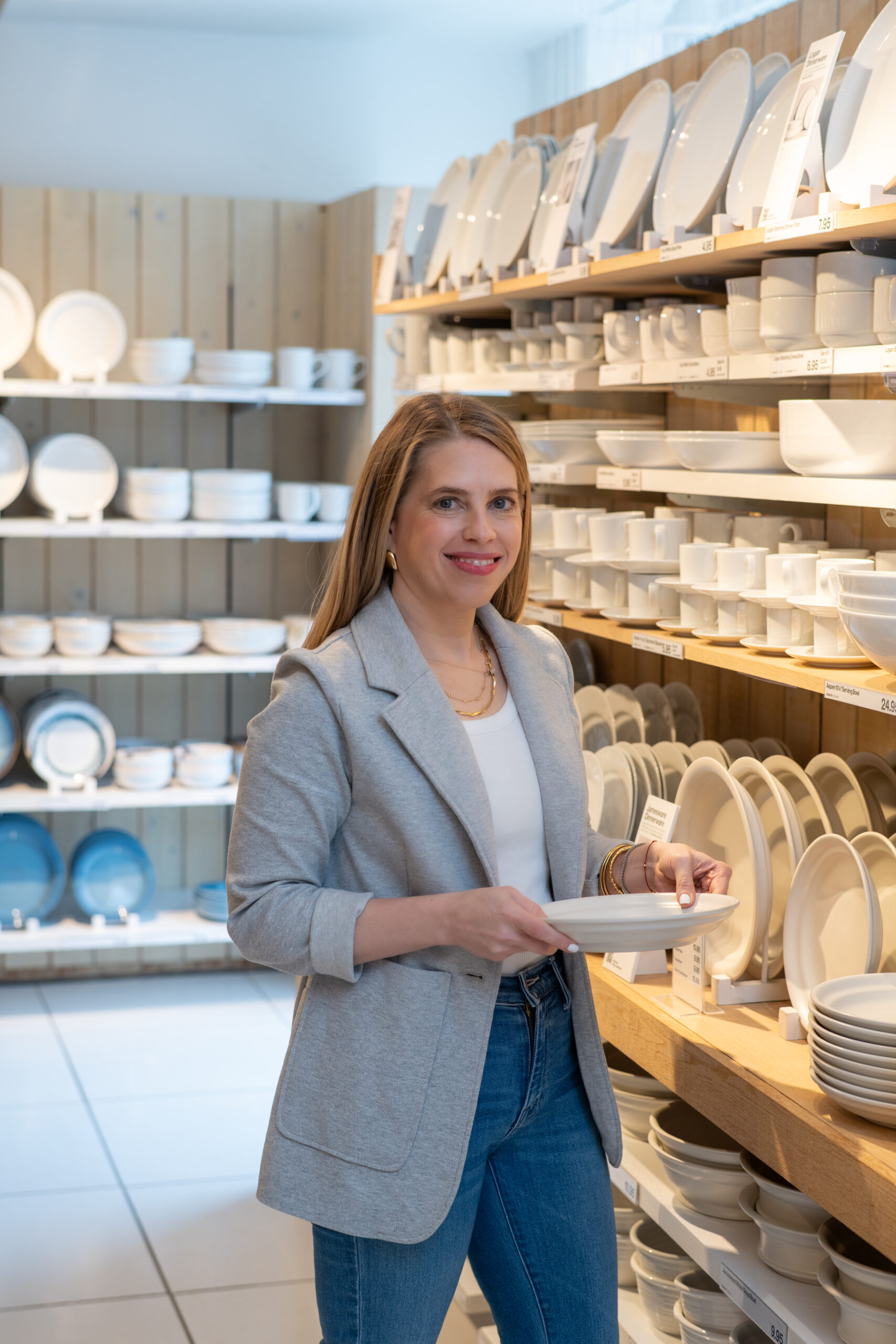
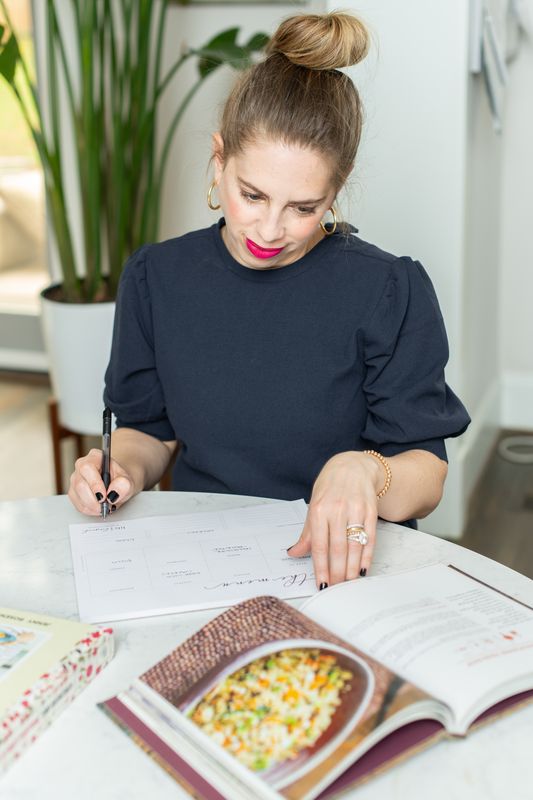

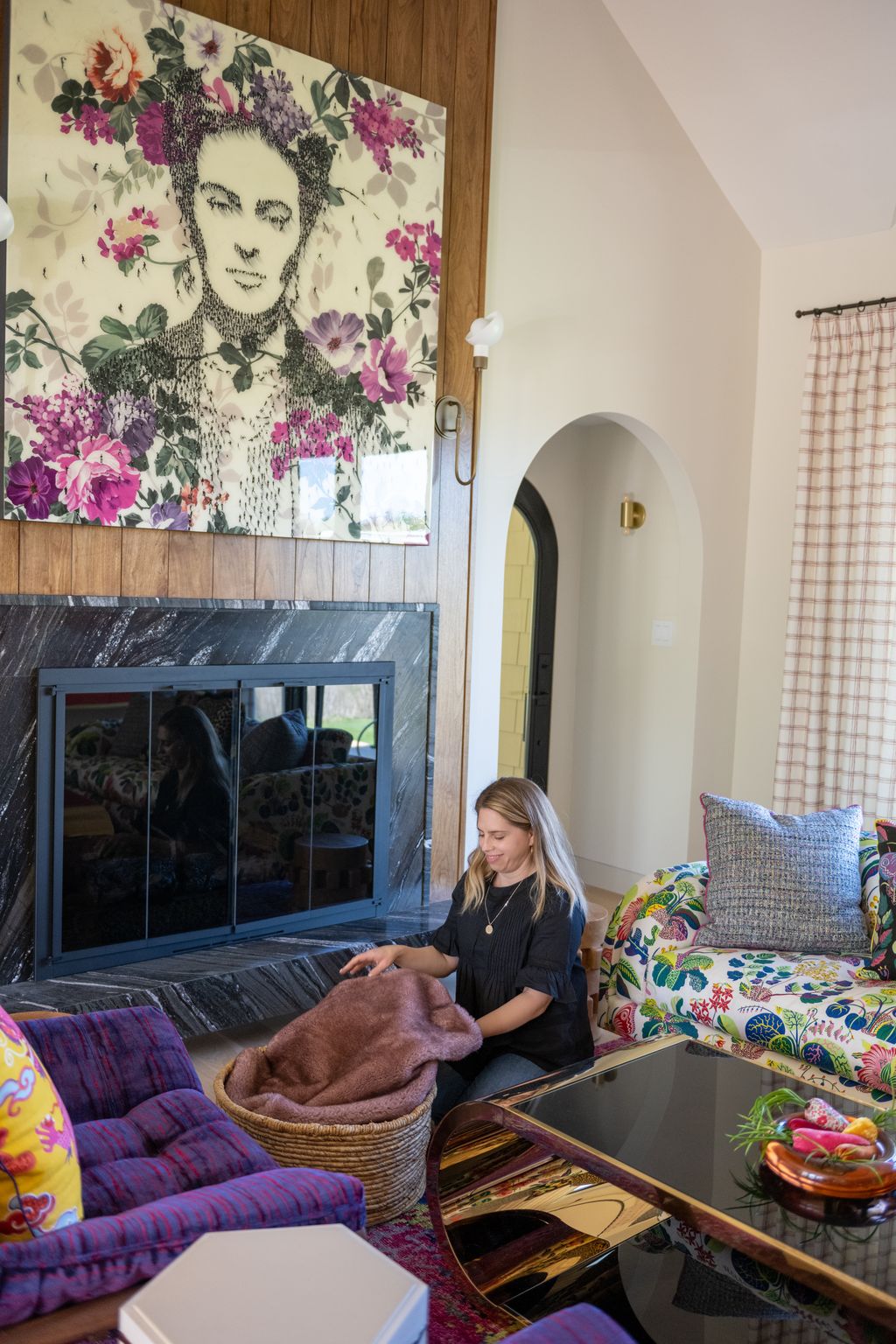
How do u organize pots and pans, I know some newer kitchens have cool stuff,, I need ideas for a boring under the counter closet !
Hi Rochel- bulky items like pots and pans are notorious for causing difficulty in the kitchen. First and foremost, nesting pots and pans (smaller pots inside of larger pots and similarly for the pans will save on space. If you’re lacking shelf space but have enough vertical height, considering adding a shelf extender (The Container Store and other home stores call them cupboard or cabinet shelves if you need a visual) so that you can squeeze out a bit of storage space. Also, lid dividers (called 4-sort dividers at The Container Store) are always great to make the lids easier to access/less cluttered than being stacked on top of one another. Hope that helps!
Thanks so much for your honesty and sharing that your makeup was a struggle for you to declutter because of the emotional attachment to the stuff. I loved your comment though that you didn’t need a negative reminder from it, which is essentially all keeping it was doing for you. And in my experience in helping people to declutter, I agree hands down that sentimental items are by far the biggest challenge. A few additional questions people can ask when evaluating whether or not to keep something that is sentimental are: Am I honoring the memory this object evokes by keeping it the way the I currently am? How often do I ever go through these items and reflect (or want to)? If this were lost in a fire or flood, what impact would it have on my daily life? How does this object make me feel when I see it (like your negative reminder)? And finally, does keeping this item from my past allow me to find joy in the present?
Hi Kristin- thank you so much for your comment! Your additional feedback regarding what to consider when decluttering sentimental items are wonderful, and I so appreciate you taking the time to not only read the post but also contribute your tips!
It is right to have a clearout, and it is also not easy and less easy, I realise as I get older as I find myself still
buying pretty much the same as I throw out though it is newer and sometimes cleaner. Think that is why a clear out is hard as it seams to make no sence though I do feel better in a cleaner simpler tidy space.So, I continue with regular clearouts (home management)